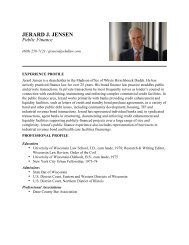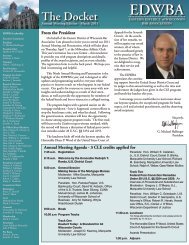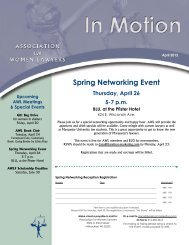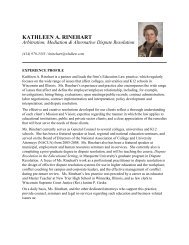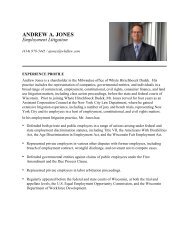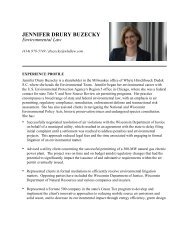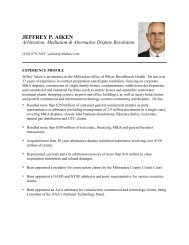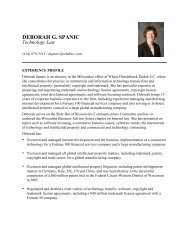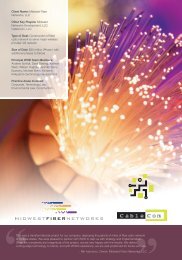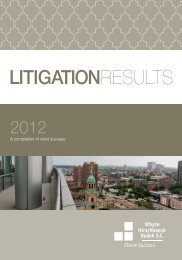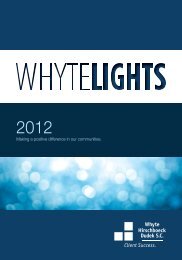FORETHOUGHT - Whyte Hirschboeck Dudek SC
FORETHOUGHT - Whyte Hirschboeck Dudek SC
FORETHOUGHT - Whyte Hirschboeck Dudek SC
Create successful ePaper yourself
Turn your PDF publications into a flip-book with our unique Google optimized e-Paper software.
a certain annual percentage rate would<br />
be considered abusive. Similarly, such a<br />
standard could allow the CFPB to decide<br />
that certain creditors should not be able to<br />
offer additional products in connection with<br />
its loan product offerings, just because it<br />
considers the additional product abusive.<br />
Without a clear understanding of what the<br />
abusive standard means, creditors would<br />
understandably be hesitant to offer new<br />
credit products.<br />
Indeed, implementation of a standard<br />
based on some undefined concept of what<br />
is abusive could have devastating effects.<br />
Dodd-Frank Contemplates a Narrow Definition<br />
of “Abusive” Acts. The better position is that<br />
the broad and malleable definition outlined<br />
above is not warranted by the language<br />
of Dodd-Frank. Simply put, the abusive<br />
standard is circumscribed by Dodd-Frank,<br />
and should be narrowly defined by the<br />
CFPB in its enforcement policies.<br />
The only new element that the statutory<br />
definition of abusive adds (above and<br />
beyond what unfair and deceptive bring<br />
to the table) relates to a consumer’s<br />
understanding of the material risks,<br />
costs, or conditions of a product or<br />
service. Without committing an unfair or<br />
deceptive act or practice (which is already<br />
prohibited), a creditor acts “abusively”<br />
when it either (1) materially interferes<br />
with a consumer’s ability to understand<br />
a financial product; or (2) recognizes<br />
that a prospective borrower does not<br />
understand the material risks, costs, or<br />
conditions of the product or service (e.g.,<br />
a consumer with a discernible incapacity,<br />
such as not speaking English or being<br />
mentally challenged) and with that<br />
knowledge, commits an act or practice<br />
that takes unreasonable advantage of<br />
the prospective borrower’s known lack<br />
of understanding.<br />
With these statutory definitions in mind,<br />
there are several standards that the<br />
CFPB should heed in interpreting and<br />
implementing the abovementioned<br />
abusive “add-on” to its power. These<br />
standards are not new concepts, but<br />
are rather reiterations of fundamental<br />
(and reasonable) concepts of law. The<br />
importance of expressly tying them to<br />
the CFPB’s enforcement policies of the<br />
abusive standard, however, should not be<br />
considered unimportant. Following these<br />
standards will ensure an interpretation and<br />
implementation of the abusive standard<br />
that is consonant with the definitions of<br />
abusive as set forth in Dodd-Frank, and<br />
FINANCE 15



